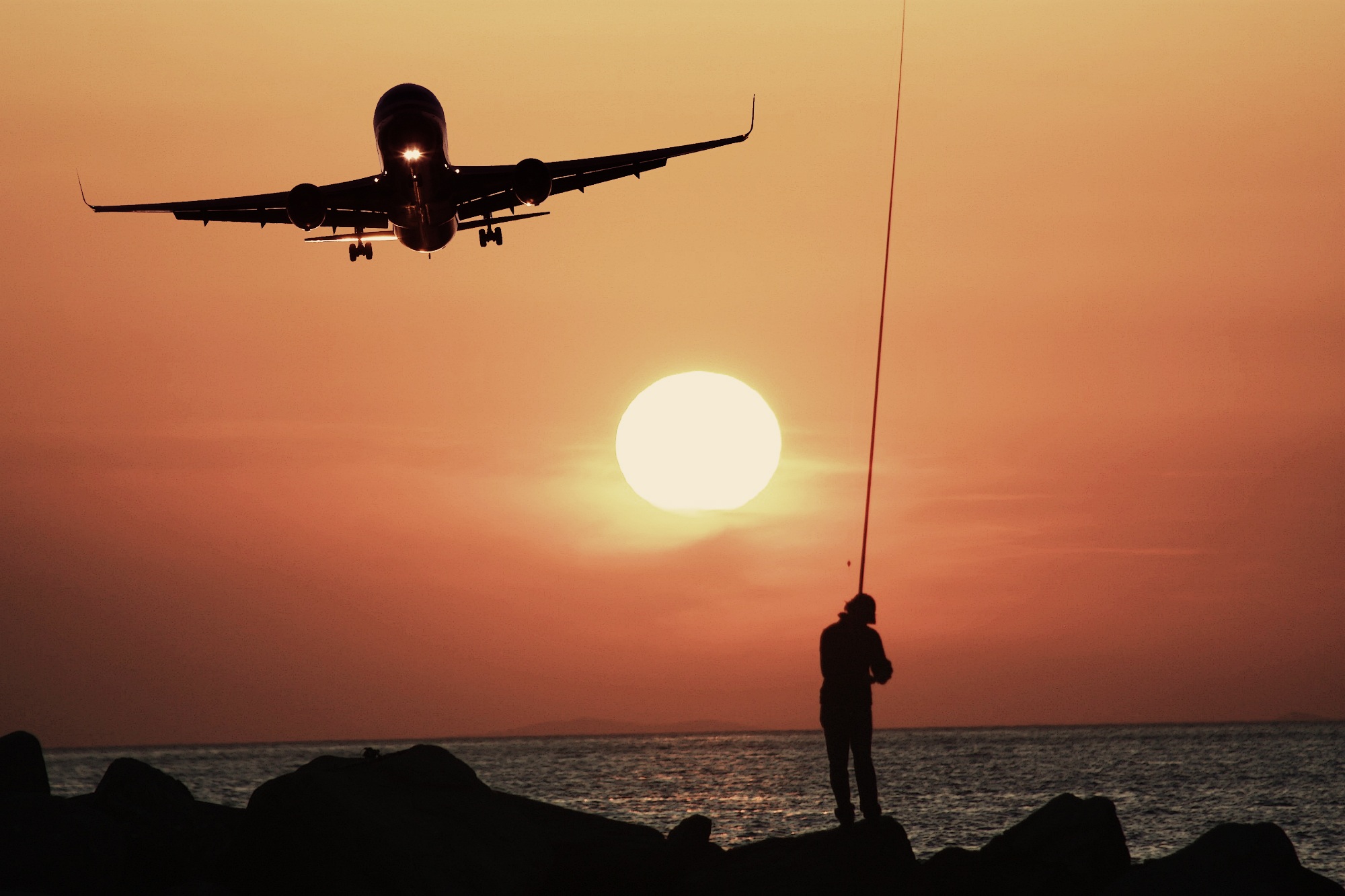Top Travel Marketing Strategies That Actually Work
The travel industry is expected to grow by 15.5% from 2022 to 2031, reaching a global value of $16.20 billion. If you want to capitalize on opportunities in the travel space, you need to have a solid marketing plan in place.
While you may offer a great service or have an amazing destination to offer travelers, it doesn’t mean much if nobody knows about it. The top travel marketing strategies can help you reach travelers and get their attention, ensuring that your business will be successful and profitable.
So which marketing strategies work best for travel? In this travel marketing guide, we’ll list the top travel marketing tips and strategies that you need to be using.
Content Marketing
Content marketing is a valuable strategy for any type of business to use these days, but can be especially useful in the travel industry. Many potential customers in the travel industry are interested in reading travel guides, recommendations, and tips.
You should ensure that your travel business has a content strategy in place so that you can reach your target customers. It’s a good idea to add a blog to your website and then start filling it with posts that will interest your ideal customer.
It can also be a great idea to use other forms of content as well. Video content, webinars, infographics, and podcasts can help you to further connect with customers and clients. They can also help you position your business as an authority in the travel industry.
Video Marketing
Falling under the umbrella of content marketing is video marketing. If you’re not making use of video as part of your travel marketing plan then you’re likely missing out on a lot of revenue. According to 83% of marketers, video offers a great ROI.
You should make sure that you’re using video to sell travel experiences and the services and products that you offer. Video content does a great job of grabbing attention and demonstrating the value of travel services and destinations.
Consider creating high-quality video content and adding it to video platforms such as YouTube and Facebook. It can also be well worth getting in on the short-form video trend by building a presence on TikTok and Instagram as well.
Virtual Reality
One of the latest marketing trends that have popped up in the travel industry is virtual reality. Virtual reality experiences can be useful for marketing destinations and attractions.
Especially during the COVID-19 pandemic, a lot of people started using virtual reality headsets. This helped them experience the feeling of traveling while in the comfort of their own homes.
Many businesses have worked to meet the demand and now offer virtual experiences. Smart marketers are creating virtual walkthroughs of destinations, hotels, museums, landmarks, and tourist attractions.
To make use of this trend, consider creating your own virtual content. This could include 360-degree tours, video tours, virtual reality experiences, and more.
Because virtual reality can be so vivid, it can do a great job of selling the real experience as well. Consider virtual reality as part of your marketing strategy if you want to get more tourists and travelers interested in what you have to offer.
Social Media Marketing
There’s a reason that marketers flock to social media and use it regularly. Using social media can be very useful for promoting goods and services. This is especially true in the travel industry.
Any social media platform can be useful to use for promoting travel destinations, tours, and services. However, it can be especially beneficial to use visual platforms such as Instagram, TikTok, and YouTube.
When using social media platforms, be sure that you’re creating engaging content that your audience loves to share. Then, post consistently and respond to comments and messages. It’s also a good idea to run some Facebook or Instagram ads to expand your reach and target your ideal customers.
User-Generated Content
For travel marketing, user-generated content (UGC) can be especially useful.
You don’t have to create all of the content yourself when marketing your travel business. You can utilize the content that your customers have created as well.
If many people are taking photos or videos of your attraction or hotel, for example, chances are that they’re posting it on social media and sharing it. They may also be writing great reviews and talking about it as well.
Consider getting in touch with some of your customers and using some of the content they have created. You can then share this with new potential customers. UGC gives you “social proof” and can make your business offerings, destination, or attraction seem much more exciting and interesting.
Influencer Marketing
Especially in the travel space, using influencer marketing is a no-brainer.
There are many travel influencers, bloggers, and YouTube creators out there. It can make a lot of sense to partner with some of them to market and advertise your travel destination or business.
Consider finding an influencer to team up with. They can share your travel business with their followers and help make them excited about what you have to offer.
Like with user-generated content and online reviews, influencer marketing can help to build your reputation. It can utilize the power of word-of-mouth to help you get more customers. When used in conjunction with some of the other marketing tactics on this list, influencer marketing can be a powerful tool.
Email Marketing
Getting potential clients and customers to opt into an email list is often easier than getting them to make a purchase. If you want to build a strong travel business, then you should aim to collect emails on your website. Then, use email marketing tools to send marketing messages to your list.
Email marketing is a great way to build a connection with leads and warm them up to your service offerings before asking for a full purchase. Consider using email marketing as part of your overall marketing strategy if you want to benefit from this direct line of contact with potential customers.
Online Reputation Marketing
For any kind of business these days, it’s important to get positive reviews online. This is also true for travel businesses, hotels, and attractions as well.
Collecting positive reviews from previous customers and clients online on websites such as Google, Facebook, and Yelp can be more impactful than you may think for improving your business and helping you stay competitive. Make sure that you’re always encouraging your customers to leave reviews online if they have a positive experience with you.
In addition to this, make sure that you’re doing what you can to reduce the impact of negative reviews. Respond to them in a cordial way and try to make things right if someone has had a bad experience.
Paid Ads
Using pay-per-click (PPC) advertising can be helpful when it comes to marketing a travel business online. With PPC ads, you’ll be able to target your customers and do it in a cost-effective way.
You might want to run social media ads on Facebook and Instagram. You can also run search engine ads on Google or Microsoft Advertising to get clicks to your website quickly.
On top of basic ads to cold audiences, however, be sure that you’re running retargeting ads as well. 96% of website visitors won’t buy a product on their first visit.
With retargeting ads, you can target people who already interacted with your business online in some way. They may have visited your website, for example. Consider using these retargeting ads to target people who have already shown an interest in your services or products.
Facebook Messenger Chatbots
Another great way to market a travel business online is to use Facebook Messenger bots.
An automated chatbot can help to answer a customer’s questions quickly and at the exact moment that they need answers. Taking the time to set up and implement a Facebook Messenger bot can be very helpful for inspiring target customers to take action.
With a chatbot, you can tell customers more about your services and can encourage them to purchase the products or packages that are right for them. You can easily provide information to customers and help them understand why your offers can be a good choice. You can also lead them directly to product pages and landing pages as well.
Using Facebook Messenger bots is a great way to automate the process of selling and can help you get more customers for your travel business.
Discounts and Special Offers
A tried-and-true method of marketing a travel business is to offer special discounts and deals to your target customers.
Special deals can attract a lot of attention and can convince a customer to purchase from you when they would be on the fence otherwise. Think carefully about special offers and distribute them through email marketing, social media, and other channels. This can help you gain a lot of brand awareness and build more buzz.
Consider creating special deals or limited-time offers if you want to drum up more business and grow your revenue.
Mastering Travel Marketing With These Strategies
Although there’s a lot that goes into travel marketing, it’s possible to handle it well if you stick to the proven strategies that are listed above. With strategies such as content marketing, influencer marketing, and email marketing, you can attract tourists and travelers and get more business than ever.
Need travel marketing advice? Reach out to us today to learn how we can help.


